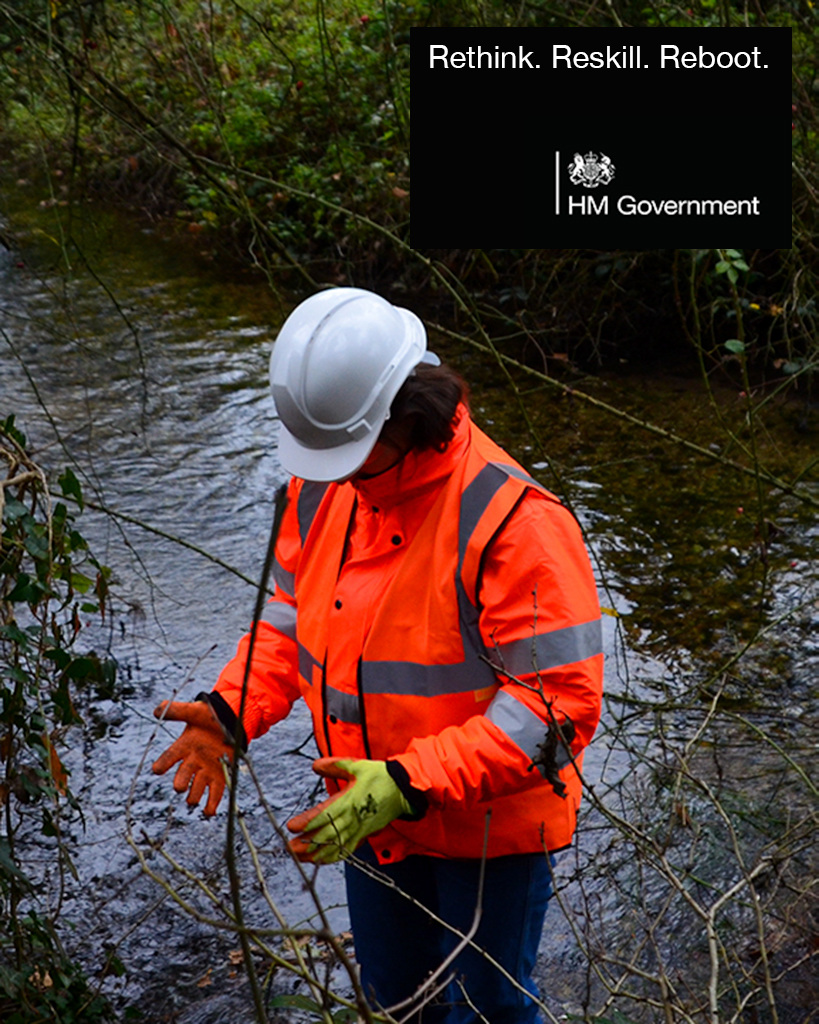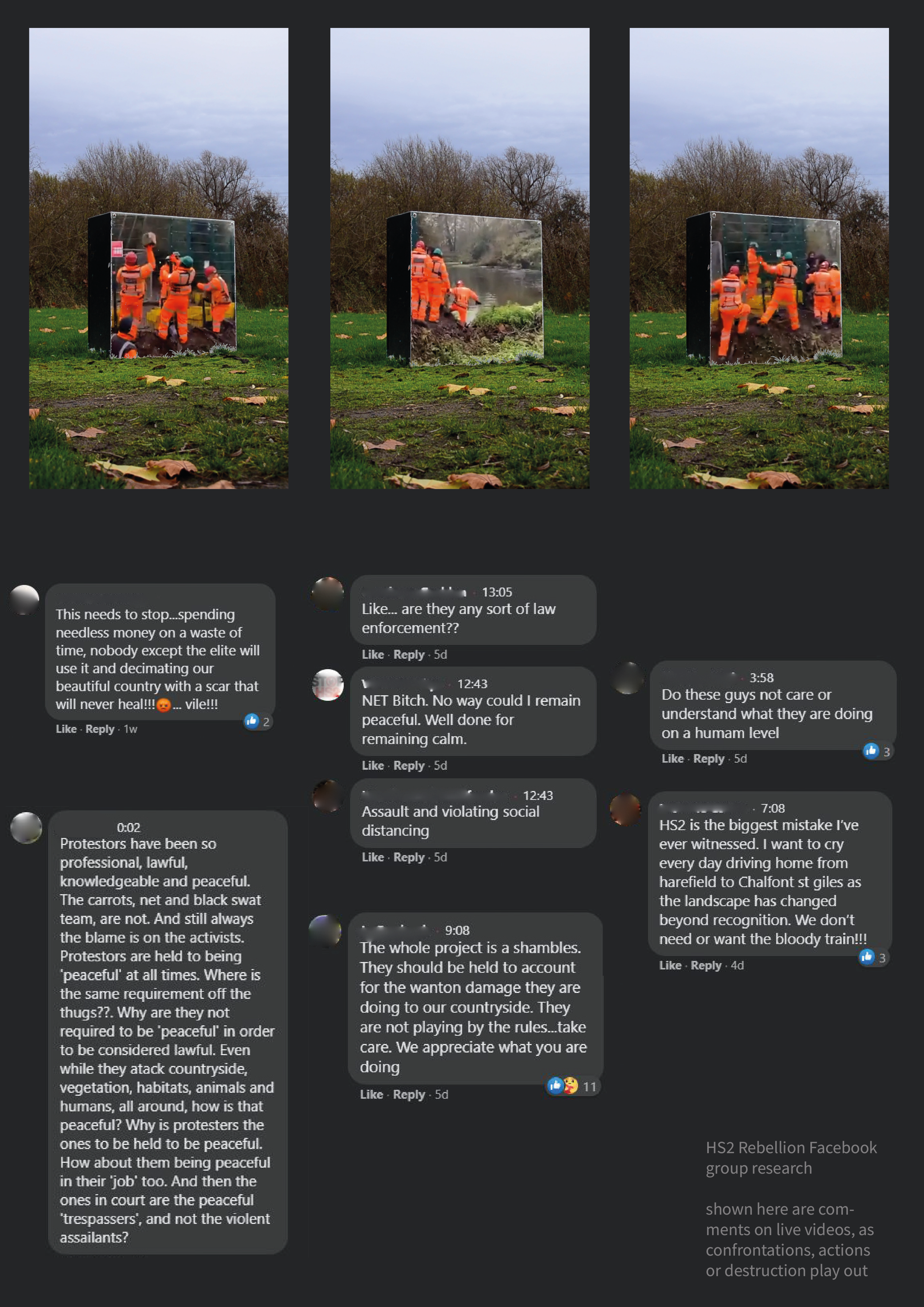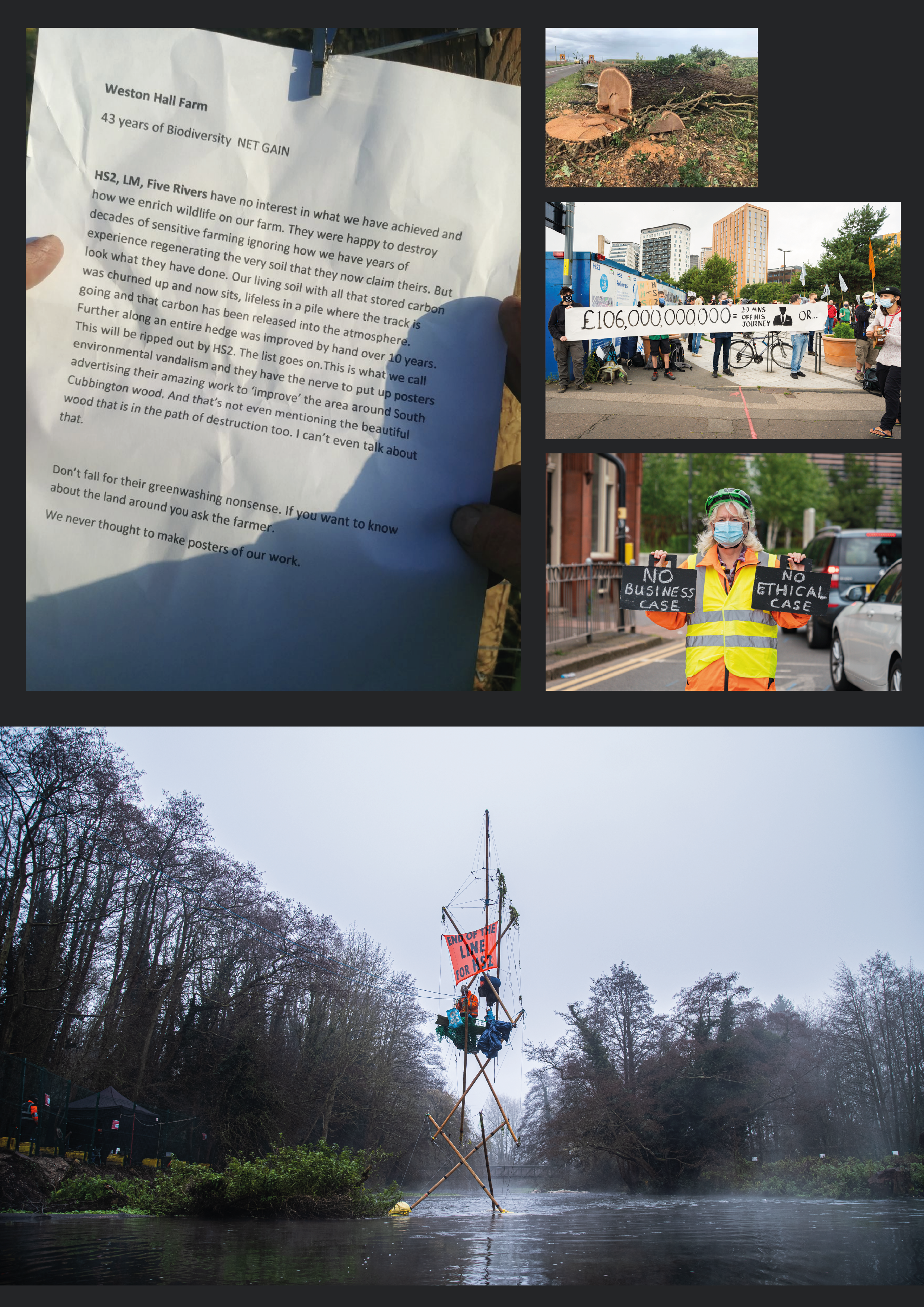
HS2 Phase 1f: Deep Listening
2020
High Speed Two (HS2) is a new rail network that will eventually connect London, the Midlands, the North and Scotland. HS2 Limited maintains that the new system will provide a lower carbon alternative to regional road and air travel1, despite calculations that even at its 120-year lifespan mark, the complex network’s construction and operation will not have been carbon neutral2. Calling HS2 “the biggest environment project in Britain”, the government grant-in-aid funded company has hired teams of experts to plant trees, create replacement habitats, salvage valuable soils, conduct ongoing surveys of ecosystem health, and more 1. This sounds thorough, but because of high-speed track requirements, there is not enough flexibility to avoid destroying a certain number of ancient oak woodlands, homes, or habitats for endangered butterflies8.
To summarize the main criticisms of HS2: the carbon emission reduction estimates are misleading, there is irreplaceable habitat along the route (I.e. one cannot make “new” ancient woodlands), it will benefit the wealthy disproportionately3, and the now estimated £106bn budget is better spent on social and medical services. There have been high-profile protests against the project since at least 2018, with confrontations streamed online between camped-out “tree protectors” and contractors4. Despite increasingly salient criticisms, almost all signs point to at least Phase One of HS2 carrying on5.
The HS2 Phase 1f: Deep Listening website explains that HS2 goes forth and has recently contracted a company specialising in “deep listening” surveys on construction sites. It has become clear to HS2 Ltd that exclusively quantitative data collection is not sufficient to monitor and promote a holistic thriving of the region at the different stages of this physical transition. They will gather rich, qualitative data from organisms along the route, making recordings of rivers, cacophonies of birds, rustling leaves, and individual badgers. The announcement of the survey also represents an effort to evolve with the language around environmental sustainability. As an expression of values conveyed through narrative becomes more critical to positive reception of corporate projects of any scale, their marketing and execution will become more creative and expansive.

If this deep listening project were implemented, the more dispersed yet effective, affective and potentially subversive outcome would be an expanding variety of individual experiences that people working on these sites would have, contributing to a greater shift towards identification of the spiritual self with the network of nature. This falls into the “power as empowerment of others” category within a systems thinking framework in that the act of deep listening facilitates sensory connectedness to the environment rather than superficial connection made through acts of hierarchical domination that are characteristically required in land development6. Practicing expanding “the perception of sounds to include the whole space/time continuum of sound” workers on the assignment would likely daily experience some level of emotional connection with the subject at hand: the subtle sounds of the landscape. Employees would gather rich audio along the route, connecting them to that landscape.


When encountering language and imagery from a blend of esoteric environmentalist and corporate inspirations, I hope a visitor to the HS2 Deep Listening website thinks it is real for a while. After learning about HS2, I want some people to keep changing their minds about whether or not this particular phase of HS2’s construction is an absurd waste of money. I offer documentation of some people at work recording sounds as well as a small library from sounds recorded in Denham Country Park near a tree protector camp in November 2020, before major construction ensues. I hope to further explore a question as to whether it is possible to bring personal connection and caring into the equation when making “observations” of nature while entrenched in a sector that generally treats elements of nature as economic commodities7. When listening to these gathered sounds, I want people to have a sliver of the experience that contractors must have had while making them: a moment intently listening to the many layers of a changing place.




1. On World Environment Day, HS2 CEO salutes the 'Biggest environment project in Britain'Jun 5, 2020-last update. Available: https://mediacentre.hs2.org.uk/news/on-world-environment-day-hs2-ceo-salutes-the-biggest-environment-project-in-britain
2. Barkham, P., 2020, -02-02T16:40:30.000Z. Will HS2 really help cut the UK’s carbon footprint?. The Guardian. ISSN 0261-3077. Available: https://www.theguardian.com/uk-news/2020/feb/02/will-hs2-really-help-cut-the-uks-carbon-footprint
3. New Economics Foundation, 2019. HS2 will serve wealthier passengers and deliver more benefits to London than the North. Available: https://neweconomics.org/2019/03/hs2-will-serve-wealthier-passengers-and-deliver-more-benefits-to-london-than-the-north
4. HS2 Rebellion - An alliance of groups resisting HS2. Available: https://www.hs2rebellion.earth/
5. Topham, G., 2019, -08-21T16:41:51.000Z. HS2: how far has work got, and why might it be scrapped?. The Guardian. ISSN 0261-3077. Available: https://www.theguardian.com/uk-news/2019/aug/21/hs2-how-far-has-work-got-and-why-might-it-be-scrapped
6. Capra, F. & Luisi, P.L., 2018. The Systems View of Life: A Unifying Vision, Cambridge, MA: Cambridge University Press.
7. Bellacasa, María Puig de La, 2017. Matters of care: speculative ethics in more than human worlds, University of Minnesota press.
8. Barkham, P., 2020, -01-15T06:00:05.000Z. HS2 will destroy or damage hundreds of UK wildlife sites, says report. The Guardian. ISSN 0261-3077. Available: https://www.theguardian.com/uk-news/2020/jan/15/hs2-will-destroy-or-damage-hundreds-of-uk-wildlife-sites-report